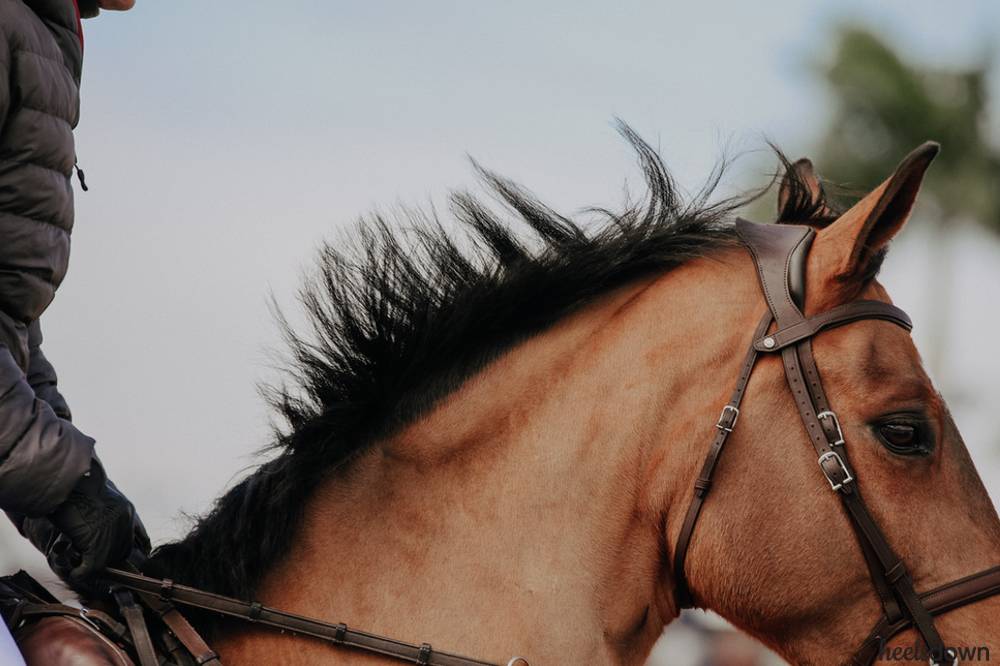The Comfort Of Tradition

By Jessica Shannon
The hunter world functions like a family at Thanksgiving. Every family has their own dishes they serve, time they prefer to gather at their table, seating charts, casual or formal attire, who cuts the turkey, and whether their family calls it “dressing” or “stuffing.”
Families have traditions, and traditions are comfortable.
Some traditions need to be preserved to maintain connection to the past. Some traditions, like incorporating a new son-in-law’s family favorite dish to help him feel at home or Monica Geller making infinite types of potatoes for the same reason, need to evolve.
We have seen a lot of evolvement and acceptance in safety equipment and horsemanship. It takes a couple of bold people to decide they do not care about their appearance in a safety vest, as well as a few well-known riders, to give others permission to feel comfortable buckling up a body protector or air vest.
Appearance is a hunter tradition in itself. The traditions we decide to change do not have to be as monumental as adding a safety vest to your #ROOTD (Riding Outfit of the Day).
I adopted an off-track-Thoroughbred in June 2020, and he is practically perfect in every way. His mane, however, lies on the left side. Hunters prefer manes to lay on the right side of the neck. When my gelding arrived, I frankly did not notice his mane was not on the traditional side. I was simply smitten with him and incredibly humbled to have a horse at all to be concerned with something as minor as on which side his thick mane lay. Trusted people with significant success in the ring, suggested I train his mane while I trained him for his second career. I listened and became obsessed with “fixing” this part of my heart horse. Their comments got to me, mostly out of respect of their experience and partly due to me wanting to fit in with a sport I loved that was centered around tradition.
One person told me to brush it over to the right every time I groomed. Articles instructed me to braid it to the “correct” side. I did both. 5-6 days per week for over two years, I brushed his mane to the right. Twice, I braided it and kept the braids in until they fell out on their own. His gorgeous mane began to be a bit on both sides. After our grooming session, it would sit beautifully on the right side as we headed to the arena until we picked up a trot. Then it would have a mind of its own. It parted down the middle and flew wildly the more we ventured around the arena.
As I groomed him one humid August Sunday morning, the thought came to me to brush his mane to the left. I wondered what would happen. Would two years of training his mane to go to the correct side be ruined? Would his mane have no particular side as it had every ride for two years?

Much to my surprise, all but one small tuft of mane stayed on the left for an hour-long ride. It reminded me of how much we need to listen to our horses, even if it means we override tradition. I perseverated over training his mane to be on the side tradition said was correct, and then I decided to take a step back and accept his left laying mane as it was. I accept him as he is and hope he, and people both at work and the barn, accept me as I am. Each day, I ride the horse I have that day, cherish each moment with him, and put every hour possible outside of work into building a relationship with my horse while retraining him. I do not know why fitting into tradition with something as simple as a mane affected me as much as it did.
I find comfort in carrying on traditions, both during the holidays and in our riding. Traditions can connect us to each other and to the past. No matter the tradition, however, I will not allow it to keep me from listening to my precious horse or question the smallest characteristic of his appearance. He is handsome, smart, silly, and my best friend. We accept and love each other. His mane will be on the left, and my vest will always be on to protect me. He will look dashing in his monogramed saddle pads, and I will school and show with a hairnet under my helmet.


